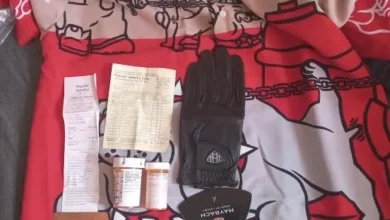“Whether or Wether”: Clearing the Confusion Once and For All

English is a beautiful language—but let’s face it, sometimes it’s confusing as heck. One of the common traps people fall into is mixing up words that sound the same but mean completely different things. Today, we’re going to look at a pair that often trips people up: “whether” or “wether.” They may sound alike, but trust me, they couldn’t be more different. Let’s break this down, and by the end of this article, you’ll never confuse them again.
Understanding “Whether”: The Decision Word
Let’s start with the more commonly used word—“whether.” If you’ve ever made a decision, questioned a possibility, or weighed two choices in your head, you’ve probably used “whether” correctly without even thinking about it.
“Whether” in Everyday Use
“Whether” is what we call a conjunction, and its main job is to introduce alternatives or express doubt. You’ll often find it used in sentences like:
- “I’m not sure whether I’ll go to the party.”
- “Can you tell me whether it’s going to rain today?”
- “Let me know whether you’re coming or not.”
It’s all about uncertainty or choice. Think of it as the linguistic fork in the road—this or that, yes or no, go or stay.
Not Always a Two-Way Street
Here’s something many people don’t know: “whether” doesn’t always need to be followed by “or not.” For example, you could say:
- “I’m wondering whether she’ll call.”
You can say “whether or not,” but it’s often redundant unless you’re emphasizing that both outcomes are possible. Like this:
- “I’m going to the beach whether or not it rains.”
See the difference? In this case, it’s about doing something regardless of the outcome.
Some Common Mistakes with “Whether”
Sometimes people confuse “whether” with “if.” While they can overlap, there’s a subtle difference. “If” is conditional, while “whether” presents choices. For instance:
- Correct: “Let me know whether you’re free.” (You’re asking about one of two options.)
- Correct: “If you’re free, let me know.” (You’re saying if the condition is true, then let me know.)
So, while both are grammatically fine, the tone and meaning shift slightly depending on which one you use.
Meet “Wether”: The Farm Animal You Never Knew About
Now let’s talk about the underdog—“wether.” You may have never heard of this word unless you grew up on a farm or have a deep love for livestock terminology. It’s not commonly used, which is probably why people mistakenly think it’s just a misspelling of “whether.”
What Exactly Is a Wether?
A wether is a castrated male sheep or goat. Yep, you read that right. Not quite the kind of word you’d expect to show up in a conversation about decision-making or weather forecasts.
In the farming world, wethers are usually kept for meat, fiber (like wool), or to lead flocks. Since they don’t have breeding potential, they’re often used for other purposes around the farm.
Why Does This Word Even Exist?
Believe it or not, “wether” is a very old English word that dates back to before the 12th century. Farmers needed a way to differentiate between the types of animals in their herds, and this term has stuck around for centuries—even if the average city dweller has no clue what it means.
It’s still used in agricultural communities, livestock competitions, and breeding programs. So, while “wether” may not pop up in your daily texts or emails, it definitely has a niche where it matters.
Fun Fact: “Wether” in Weather
Here’s an interesting twist—“wether” was actually used in early English as part of the word “bellwether.” A bellwether is a sheep (usually a wether) that wears a bell and leads the flock. The term evolved to mean someone who leads or indicates trends, especially in politics or business. So technically, “wether” played a small role in shaping our vocabulary after all.
Why the Confusion? A Case of Homophones
You’re probably wondering: how did a word for a farm animal get confused with a word about choices? It all comes down to homophones—words that sound the same but have different meanings and spellings.
The Spelling Struggle
Since “wether,” “whether,” and even “weather” all sound alike, it’s easy to understand the confusion. Here’s a quick rundown to help you out:
- Whether = Choices, options, uncertainty.
- Wether = A castrated male sheep or goat.
- Weather = Rain, sunshine, snow, temperature, etc.
So when someone writes, “I don’t know wether I’ll go,” it’s incorrect—unless they’re referring to a sheep making decisions (which, let’s be honest, would be a weird farm sitcom).
Spellcheck Doesn’t Always Help
The worst part is, most spellcheck tools won’t catch this kind of mistake because “wether” is a real word. That’s why it’s crucial to understand the meaning behind what you’re writing. Otherwise, you might end up saying something very different than you intended.
How to Always Choose the Right Word
Okay, now that we’ve got all the definitions down, let’s talk about how to make sure you never mix them up again.
Ask Yourself This Simple Question
When in doubt, just ask yourself:
“Am I talking about a decision or a sheep?”
If your sentence involves a choice, uncertainty, or options, “whether” is your go-to. If it’s about livestock—specifically male sheep or goats—then you’ve got a “wether” on your hands.
Read It Out Loud
Another great tip: read your sentence aloud. Often, you’ll notice if something sounds off. If you say, “I’m deciding wether to go or stay,” and it feels odd, it probably is. Your brain knows what sounds right, even if your fingers typed something else.
Practice Makes Perfect
As with most grammar issues, the more you read and write, the more you’ll internalize these distinctions. Read quality writing, pay attention to context, and you’ll find yourself using “whether” and “wether” like a pro.
Final Thoughts: It’s All About Context
The words “whether” and “wether” are a great example of why English can be both charming and maddening. One is about decisions; the other is about sheep. They sound the same but belong in completely different conversations.
Here’s a quick recap to seal the deal:
- Use “whether” when discussing choices, possibilities, or uncertainty.
- Use “wether” only when referring to a specific type of livestock.
- Don’t trust spellcheck blindly—know your words and their meanings.
Next time you’re writing and pause at “whether or wether,” remember this article and smile. You’re officially smarter than most people on the internet when it comes to this quirky word pair.



